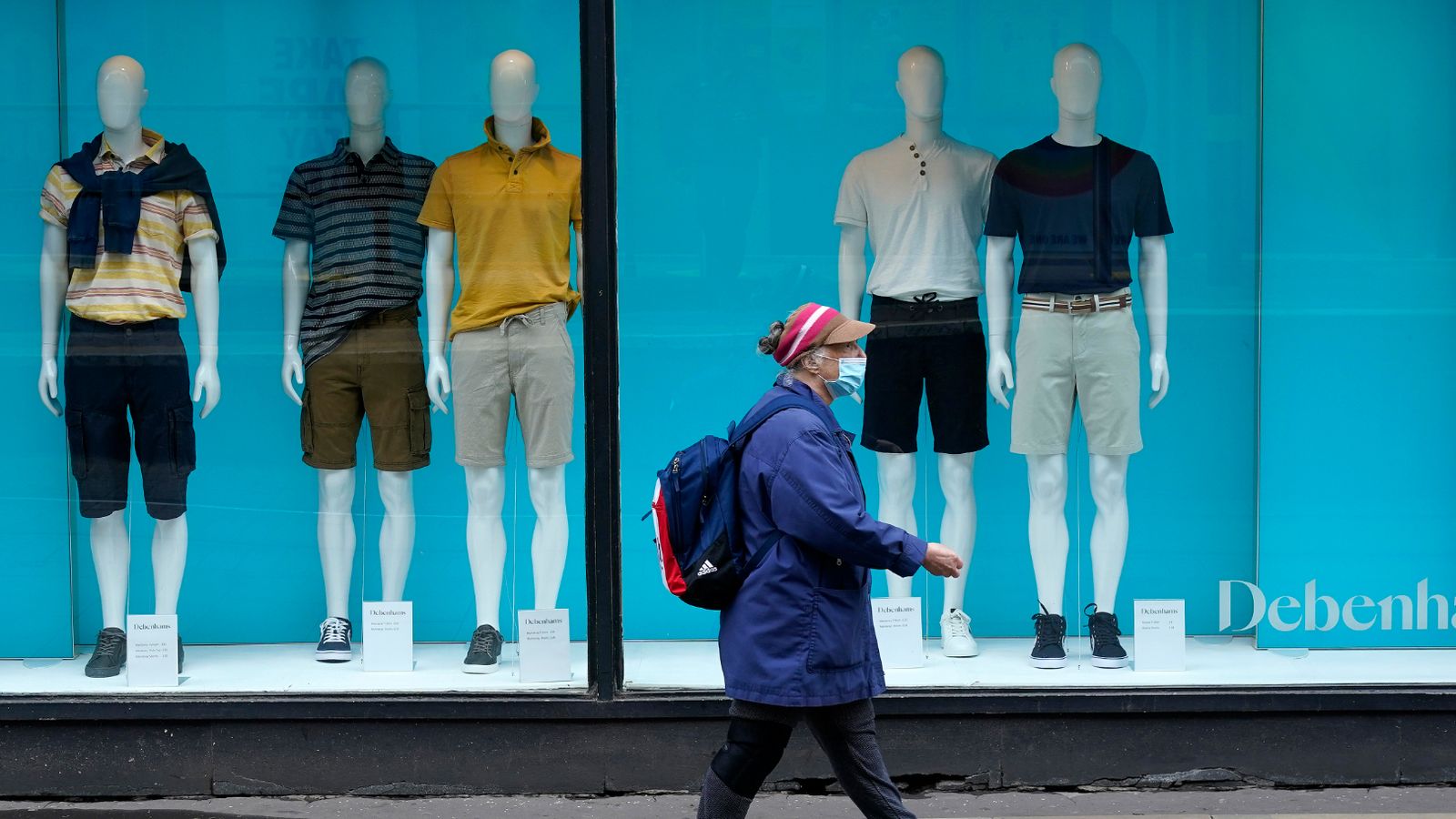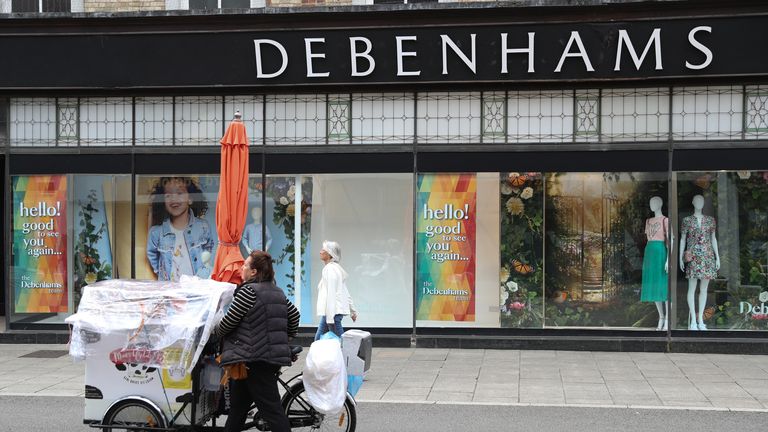Mukesh Ambani, India’s richest man and the powerhouse behind one of the country’s largest conglomerates, has emerged as a shock contender to take control of Debenhams, the struggling department store chain.
Sky News has learnt that Mr Ambani’s Reliance Retail empire, which last year bought the world-famous British toy store Hamleys, is among a small number of parties in discussions with advisers to Debenhams about acquiring part or all of the 242-year-old retailer.
Sources said on Wednesday there was no certainty that Reliance’s interest would develop into a formal bid for Debenhams.
One insider said, however, that the Indian group’s interest appeared to be serious.
An auction of Debenhams, which has been in administration since April, has been underway for several weeks, with investment bankers at Lazard responsible for co-ordinating talks with potential buyers.
The emergence of Reliance as a prospective bidder is a surprise, given the scale of the turbulence facing Britain’s high streets amid the deepening coronavirus crisis.
This week’s announcement by the prime minister of new restrictions on hospitality businesses does not directly affect retailers such as Debenhams, but paves the way for a more protracted curtailment of economic activity than was anticipated at the start of the UK-wide lockdown in March.
Mr Ambani is widely regarded as being the richest person in Asia, with a fortune estimated to be valued at more than $64bn (£49bn).
His conglomerate includes interests in industries as diverse as petrochemicals, textiles and technology.
Reliance Retail has in recent months secured billions of dollars of investment from blue-chip private equity firms, the latest tranche of which was announced this week with the sale of a $750m (£578m) stake to KKR.
The Indian group’s participation in the Debenhams sale process may ultimately involve it bidding for only part of the British department store chain’s assets, according to insiders.
Reliance did not respond to an emailed request for comment, while Debenhams declined to comment.
People close to the process had indicated that the chain was keen to agree a takeover by the end of September, but better-than-expected trading has relaxed the urgency of that timetable in recent weeks, they said.
Mark Gifford, the company’s chairman, said recently that it had substantially more cash on its balance sheet than anticipated, meaning that it was “not on a cliff-edge”.
Nevertheless, FRP Advisory, Debenhams’ administrator, has lined up Hilco Capital, a specialist in winding down troubled retailers, to oversee a liquidation of Debenhams if none of the alternative options – a sale to a third party or an injection of capital from its most recent owners – bears fruit.
Hilco, which briefly acquired the Oasis and Warehouse brands after they collapsed into administration earlier this year, also worked with Debenhams on the permanent closure of 18 stores this year.
The identity of other participants in the auction is unclear, although Mike Ashley, the Frasers Group chief executive, has made no secret in his interest in a small proportion of Debenhams’ 120 stores.
Debenhams employs about 12,000 people in the UK, having collapsed into administration in April, when the coronavirus lockdown brought high street retailers’ revenues to a grinding halt.
The Lazard process, which is being conducted under the codename Project Ariana, includes the chain’s assets outside the UK other than Magasin du Nord, its Danish subsidiary.
As well as more than 120 UK stores, Debenhams trades from 45 sites in 17 countries in Europe, the Middle East and Asia under various franchise agreements.
Information circulated among potential buyers outlines an “illustrative scenario” under which half of Debenhams’ UK estate would be liquidated, leaving it with 60 stores, with the business potentially recording profit of up to £90m in the year ending February 2022.
During the summer, Debenhams began fighting an attempt to increase its business rates bill in Swansea, which it describes as a “test case” that will determine the group’s future.
The preparation of contingency plans for Debenhams’ liquidation represents another turbulent chapter for a business which traces its roots to 1778.
It initially fell into administration in the spring of last year after a bitter public battle with Mr Ashley, whose Frasers Group had become its biggest shareholder.
For much of its history, Debenhams was highly profitable, becoming an established anchor tenant on many high streets and in shopping centres around the UK.
It relisted on the London stock market in 2006 following a spell in private equity ownership that proved lucrative for CVC Capital Partners and TPG but which left its balance sheet saddled with what proved to be unsustainable debts.
After its first spell in administration, Debenhams launched a company voluntary arrangement (CVA) to secure agreement for store closures and rent cuts.



